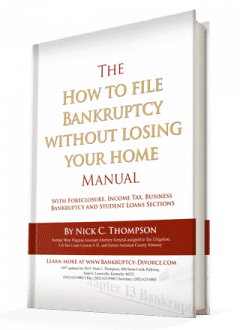The Consumer Financial Protection Bureau (CFPB) Successor in Interest Rules took effect on April 19th, 2018. Interestingly, what the successor in interest rules say boils down to some pretty simple requirements.
To explain, a spouse or child essentially stands in the original borrower’s shoes for purposes of the Mortgage Servicing Rules and as a “consumer” for the purposes of the Truth in Lending Act. They are treated no differently than the original borrower except that they are not personally liable for the debt. If you are a confirmed successor in interest, here is the CFPB rule.
Under this rule, you can ask for account information, request a payoff statement, and conduct business general similar to the loan’s original maker. You also have the same rights to loss mitigation.
Second, the Successor in interest rule applies to both TILA and RESPA which govern modifications and how the loan is handled. These are Consumer protection modifications to the existing Mortgage Servicing Rules. The Successor in Interest rules enables the servicer to deal with widows and divorced parties without violating the FDCPA. It protects surviving spouses who acquire property and prevents foreclosure simply because the servicer of the mortgage cannot communicate with the new owner.
CFPB Successor in Interest Rules for Widows & Divorced Persons
⎆ Successors in interest rules cover transfers to family.
Anyone who collects or services the loan must obey these rules whether they are credit unions, small lenders, or large. There are no exceptions. So, the law essentially requires the debt collector to treat a confirmed successor in interest no different than the original borrower. In fact, successor in interest rules covers a joint tenant, a relative of the borrower, spouse, or child of the borrower. It covers these persons whether the transfer was due to death or due to divorce. This can be helpful for persons who otherwise might lose a home simply because the lender will not treat them as a borrower. It is especially helpful in Chapter 13.
Successor rules and procedures require servicers to confirm and communicate with any potential or confirmed successor in interest:
- Upon notice of death or transfer.
- Provide written requests for documentation to persons for supporting documents that are reasonably required to support a request.
- The statute requires the servicer to provide a “written description of the documents the servicer reasonably requires to confirm the person’s identity and ownership in the property” within ten days 12 CFR 1024.36. There is also a 30-day rule under the same section for other communications.
- If the documents need further support, the servicer must notify upon receipt what added documents are necessary to confirm the person’s status as a successor in interest
⎆ The CFPB outlines the Server’s responsibilities to successors in interest.
The following comes from the frequently asked questions at the CFPB
Do servicers have a responsibility to know if a confirmed successor in interest is in bankruptcy for purposes of complying with the early intervention and periodic statement requirements?
ANSWER (UPDATED 3/20/2018): Yes. Under Regulation X, § 1024.30(d) and Regulation Z, § 1026.2(a)(11), confirmed successors in interest become “borrowers” for purposes of the early intervention requirements and “consumers” for purposes of the periodic statement provisions. Because confirmed successors in interest become “borrowers” and “consumers” for the relevant parts of Regulation X and Regulation Z, servicers need to know whether confirmed successors in interest are in bankruptcy and may want to include them in any normal checks they utilize to identify borrowers in bankruptcy.
QUESTION 2: Do the modifications to the periodic statement required for borrowers in bankruptcy apply if the borrower is a confirmed successor in interest in bankruptcy?
ANSWER (UPDATED 3/20/2018): Yes. Under Regulation Z, § 1026.2(a)(11), confirmed successors in interest become borrowers for purposes of the periodic statement provisions, and so the periodic statement modification requirements for borrowers in bankruptcy in § 1026.41(f) would apply to the periodic statements supplied to that confirmed successor in interest in bankruptcy. For general information about the modifications to the periodic statement or coupon book when a borrower is in bankruptcy, see section 5.10 of the Mortgage Servicing Small Entity Compliance Guide.
⎆ The server must share some information with a successor in interest but not everything.
The lender does not have to share personal information about the original borrower’s contact or financial information. But the lender does have to provide the following information:
- Escrow accounts, payments, and account balances;
- Mortgage servicing transfers and mortgage transfers;
- Error resolution;
- Information requests;
- Force-placed insurance;
- Early intervention;
- Loss mitigation;
- Post-consummation events;
- Payoff statements; and
- Periodic Statements.
 Resources for Bankruptcy
Resources for Bankruptcy
Louisville Kentucky Bankruptcy Forms
Credit Counseling to Meet Bankruptcy Requirements
Including Income, Assets, Debts, and Expenses in a Bankruptcy Petition
Fraudulent or Preferential Transfers • Fair Market Value
Fraudulent Concealment and Transfers in Bankruptcy
Contact us to see what defenses you have or to negotiate with the debt collector. Nick C. Thompson, Bankruptcy Lawyer: 502-625-0905.






